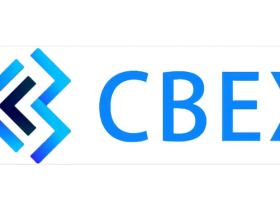African startups are increasingly delving into the debt market, having raised over $1.1 billion in debt as of November 30, according to data from Africa: The Big Deal. This trend signals heightened investor efforts to safeguard their interests, considering that debt takes precedence over equity and is repayable.
The $1.1 billion in debt raised by African startups constitutes more than 35 percent of the total funding of $2.6 billion secured by startups in Africa in 2023. Equity funding, amounting to $1.5 billion, makes up 60 percent of the overall funding. However, The Big Deal observes a less optimistic scenario for equity funding, with the 2023 total to date representing only 40 percent of the levels recorded in 2022 and 2021 at $3.7 billion.
Conversely, debt financing has experienced substantial growth in 2023, surpassing the $676 million and $257 million raised in 2022 and 2021, respectively.
“For every $1 of equity announced, 70¢ in debt was raised in 2023 versus 19¢ in 2022 and 7¢ in 2021. While debt numbers might have been underreported in the past, this evolution points to a trend in startups using debt to finance their growth, especially through large deals: with almost $700 million of debt raised this year so far, MTN-Halan, Sun King, and M-Kopa,” the report noted.
The Big Deal monitors funding from $100,000 and above. A similar report from Partech in January found that debt funding in African startups rose to $1.5 billion across 71 deals in 2022 and $767 million in 2021. Debt funding involves borrowing capital with a promise to repay the principal along with interest within a defined timeframe, while equity financing involves selling ownership stakes.
Startups are turning to debt financing for various reasons, including the desire to retain ownership. Debt financing allows them to secure funding without ceding ownership to external investors, crucial for founders aiming to maintain their vision and execute business strategies without interference.
“I believe that debt funding, when structured well, allows the startup some breathing space to scale at their own pace and still meet up with their obligations,” said Johnson Ajani, a financial expert and Head of Electronic Banking at Haggai Mortgage Bank Limited. “This diversification of funding sources helps, just like a bank takes on liabilities in the form of customers’ deposits for business purposes.”
Despite the benefits of debt funding, some experts warn of significant risks for startups in Africa. However, it offers investors protection from risks associated with company failure, potentially explaining the increasing preference for this financing route. An anonymous expert mentioned that debt terms may include a kicker allowing conversion to equity if the business shows earning potential.
“Debt funding is crucial for startup growth. But, it is limited and costly for African startups,” said Jasiel Martin-Odoom, African investment lead at Accion Venture Lab. “Before seeking debt, prioritize positive cash flow; update underwriting to match the current interest environment; and if possible, seek denominated debt.”
Ajani emphasized that for a startup, borrowing for productivity is essential. Debt financing with a fixed interest payment enables startups to expand their business volume.
However, startups in Nigeria considering debt funding from local investors should be cautious due to frequent upward adjustments in the interest rate regime in the country, according to Ajani. Scrutinizing the terms and conditions of debt deals is crucial. He suggests static interest loans as the preferable option over those with rates changing with adjustments in MPR.
Other macroeconomic factors, such as foreign exchange fluctuations, particularly affect loans in foreign currency, impacting the cost of servicing debt and overall financial stability. Frequent regulatory changes also pose challenges to the overall business environment, exemplified by the recent delisting of PSSPs, super agents, and switches from the bank NIP transfer list by the Nigerian-Interbank Supplementary System.
“While this is not in itself a wrong policy, the fact that some startups were allowed on that platform in the first instance, and that could have encouraged other players, makes it a big regulatory risk. This is the same as the frequent demolishing of buildings for various reasons after the government allowed those structures to be erected in the first place,” Ajani said.
Source: Business Day



















Leave a Reply